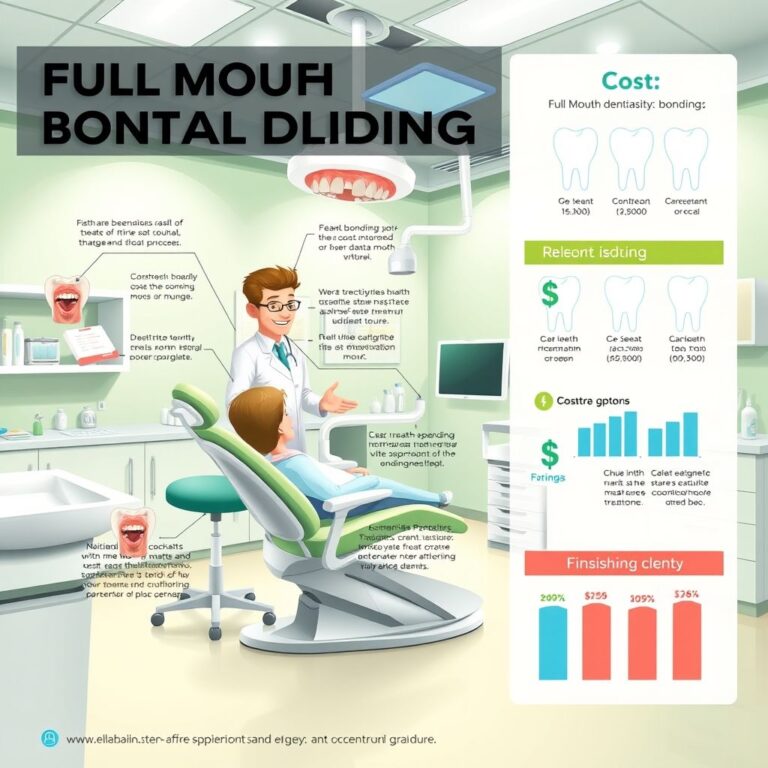A Comprehensive Guide to Dental Bonding Cost South Africa: Unveiling a Brighter Smile
For many South Africans, achieving a dazzling smile is a top priority. Chipped teeth, gaps, and discoloration can significantly impact confidence and self-esteem. Thankfully, dental bonding offers a cost-effective and versatile solution to these concerns. This procedure uses a tooth-colored resin material to repair or cosmetically enhance teeth, creating a natural-looking and beautiful smile.
This comprehensive guide delves into the world of dental bonding cost South Africa. We’ll explore factors influencing the price, provide a detailed breakdown of average costs, and answer frequently asked questions to empower you with informed decision-making.

The Allure of Dental Bonding
Before diving into costs, let’s understand the magic of dental bonding. This minimally invasive procedure involves applying a composite resin, a biocompatible material that closely resembles the natural tooth structure, to the affected area. The dentist meticulously sculpts and shapes the resin to achieve the desired outcome, whether it’s repairing a chipped tooth, closing a minor gap, or masking discoloration.
Factors Influencing Dental Bonding Costs
The cost of dental bonding in South Africa isn’t a one-size-fits-all situation. Several factors can influence the final price you pay. Here’s a breakdown of the key players:
- Dentist’s Experience and Location: The expertise and reputation of your chosen dentist can significantly impact the cost. Renowned dentists with extensive experience in cosmetic dentistry may charge more compared to those starting their careers. Location also plays a role, with practices situated in major cities typically commanding higher fees.
- Complexity of the Procedure: Simple repairs like fixing a minor chip will naturally be less expensive than more intricate procedures like closing a larger gap or masking extensive discoloration. The amount of resin material required and the time involved in sculpting and shaping will also influence the cost.
- Number of Teeth Requiring Bonding: The price typically increases proportionally to the number of teeth treated. If you require bonding on multiple teeth, expect the overall cost to reflect the additional materials and time needed.
- Pre-treatment Procedures: In some cases, additional procedures might be necessary before bonding. X-rays to assess the tooth’s health, anesthesia for pain management, or even teeth cleaning to ensure a clean surface for bonding application could add to the final cost.
- Dental Insurance Coverage: Dental insurance plans can significantly lessen the financial burden of dental procedures. Check your specific plan to determine its coverage for dental bonding and the percentage it reimburses.
Average Dental Bonding Costs in South Africa
While providing an exact quote is impossible without a dental consultation, we can offer a general range of costs for dental bonding in South Africa:
| Procedure | Average Cost (South African Rand) |
|---|---|
| Simple Repair (Minor Chip) | R750 – R1200 |
| Moderate Repair (Larger Chip or Discoloration) | R1500 – R2500 |
| Closing a Minor Gap | R2000 – R3000 |
| Complex Repair (Extensive Damage) | R3000 and Above |
Remember: These figures are for informational purposes only. Consulting a qualified dentist for a personalized quote is crucial.
Detailed Breakdown of Costs
To provide a clearer picture, let’s delve deeper into the potential breakdown of dental bonding costs:
- Consultation Fee: Most dental practices charge a consultation fee for the initial evaluation of your needs and discussing treatment options. This typically ranges from R300 to R500.
- Procedure Fee: This covers the dentist’s expertise, time, and skill involved in the bonding procedure itself. Expect this to be the most significant cost component.
- Materials Fee: The cost of the composite resin used for bonding will be factored into the final price. High-quality materials might command a slightly higher fee, but they ensure optimal results and longevity.
- Anesthesia Fee: In some cases, local anesthesia may be required to numb the area for pain management. This fee can vary depending on the type of anesthesia used.
- X-ray Fee: If X-rays are deemed necessary to assess the tooth’s health, their cost will be added to the final bill.
Financing Options: Achieving Your Smile Goals
Understanding the potential costs empowers you to make informed decisions. Here are some financing options to consider:
- Dental Insurance: As mentioned earlier, dental insurance coverage can significantly reduce your out-of-pocket expenses.
- Payment Plans: Many dental practices offer flexible payment plans to make treatment more accessible.
- Medical Loans: Certain medical loan options might be available to finance dental procedures. Research different lenders and terms to find the most suitable option.
Maximizing Your Investment: Considerations Beyond Cost
While cost is undoubtedly a crucial factor, focusing solely on the price tag can be misleading. Here are some additional considerations to ensure you maximize your investment in dental bonding:
- Dentist’s Expertise and Qualifications: A skilled and experienced dentist with a strong track record in cosmetic dentistry is paramount. Research potential dentists, read online reviews, and inquire about their experience with dental bonding procedures. Choosing a qualified dentist who prioritizes aesthetics and longevity will deliver a more natural-looking and lasting result.
- Material Quality: The quality of the composite resin used for bonding plays a vital role. Opting for high-quality materials that mimic the natural translucency and texture of teeth will yield a more aesthetically pleasing outcome. While it might involve a slightly higher price, these materials offer superior strength, stain resistance, and longevity.
- Durability and Longevity: Dental bonding, while a versatile solution, isn’t a permanent fix. The lifespan of your bonded tooth depends on various factors, including the complexity of the repair, your oral hygiene practices, and habits like teeth grinding. Discuss expected durability with your dentist and understand any potential maintenance or touch-up needs down the line.
- Consultation and Communication: A thorough consultation with your dentist is vital. Discuss your aesthetic goals, expectations, and any concerns you might have. A reputable dentist will take the time to understand your needs and explain the procedure in detail. Clear communication ensures you feel confident and comfortable throughout the process.
Maintaining Your Bonded Smile: Essential Post-Bonding Care
Following proper aftercare is crucial to preserve the beauty and longevity of your bonded teeth. Here are some key practices to maintain your dazzling smile:
- Brushing and Flossing Regularly: Maintain a consistent oral hygiene routine of brushing twice daily and flossing once a day. Use a soft-bristled toothbrush and avoid abrasive toothpaste to prevent damaging the bonding material.
- Minimize Staining Foods and Beverages: Coffee, tea, red wine, and certain curries can stain the bonding material. Enjoy these indulgences in moderation and rinse your mouth thoroughly afterwards.
- Avoid Bad Habits: Habits like nail-biting, chewing on hard objects, or using your teeth as tools can chip or damage the bonding. Be mindful of these habits and try to break them to protect your investment.
- Regular Dental Checkups: Schedule regular dental checkups and cleanings with your dentist. This allows for professional monitoring of the bond and early detection of any potential issues.
Frequently Asked Questions (FAQs) about Dental Bonding in South Africa
1. Does dental insurance cover bonding?
Dental insurance coverage for bonding varies depending on your specific plan. Check your policy details to understand the extent of coverage and any limitations.
2. How long does the dental bonding procedure take?
The duration of the procedure can vary based on the complexity of the repair. A simple chip repair might take 30-45 minutes, while more intricate procedures can take up to an hour or longer.
3. Is dental bonding painful?
Dental bonding is typically a comfortable procedure. Local anesthesia can be used to numb the area for pain management, and most patients experience minimal discomfort.
4. How long does dental bonding last?
The lifespan of dental bonding can range from 5 to 10 years, depending on various factors. Proper oral hygiene, dietary habits, and avoiding bad habits all contribute to the longevity of the bond.
5. What are the alternatives to dental bonding?
Alternatives to dental bonding include veneers, crowns, or teeth whitening, depending on the specific concern. Consult your dentist to discuss the most suitable option for your needs.
Conclusion
Dental bonding offers a cost-effective and versatile solution to achieve a beautiful and confident smile. By understanding the factors influencing costs, exploring financing options, and prioritizing quality materials and dentist expertise, you can ensure a successful and long-lasting outcome. Remember, maintaining your bonded teeth through consistent oral hygiene practices is key to maximizing your investment. This comprehensive guide empowers you to make informed decisions and embark on your journey towards a brighter smile.
You might also want to check out these articles for more ideas: dental bridge cost south africa


